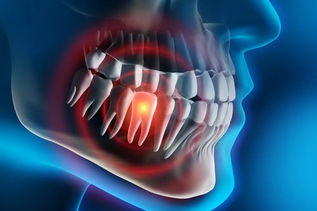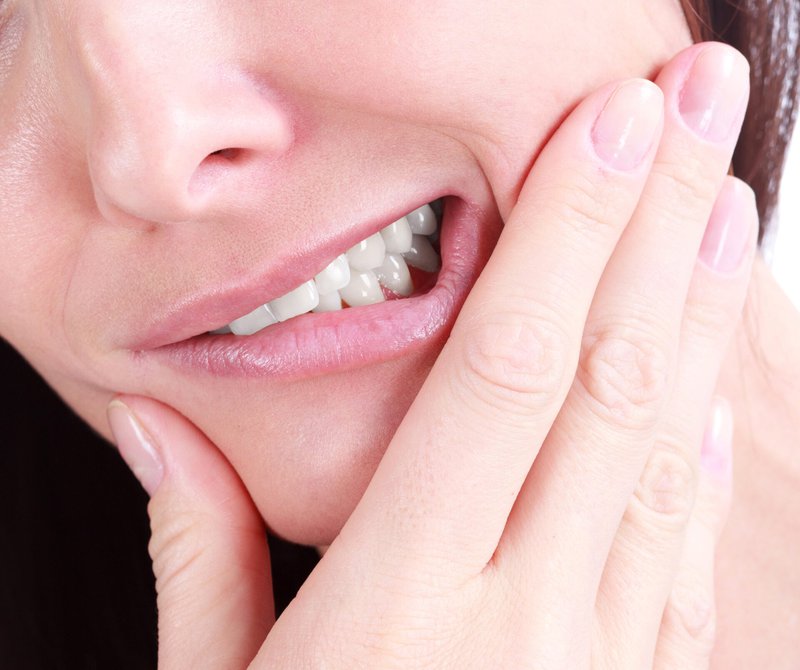
How to Recognize Wisdom Teeth Issues
Wisdom teeth, also recognized as third molars, typically emerge during the later stages of adolescence or the onset of early adulthood.
While these molars can be advantageous when they develop without hindrance, complications can ensue, resulting in discomfort commonly denoted as wisdom tooth pain, along with various other issues.
Understanding Wisdom Teeth Anatomy
Wisdom teeth, or third molars, are located towards the back of the oral cavity. Their development usually initiates during late adolescence and may extend into early adulthood.
Nevertheless, these molars often confront impediments due to the limited available space within the oral cavity, and what is the procedure for wisdom teeth removal is therefore paramount.
Signs of Wisdom Teeth Complications
Wisdom Tooth Pain and Discomfort
One of the most frequently observed indications of issues related to wisdom teeth is the presence of discomfort and wisdom tooth pain symptoms in the rear portion of the mouth. This pain can vary from mild uneasiness to severe and incapacitating. The ability to differentiate between mild discomfort and severe pain is of paramount importance when it comes to identifying complications associated with wisdom teeth.
It's essential to note that wisdom tooth pain can on occasion extend to the jaw, ear, or even the head. Neglecting to have the source of this pain assessed by a dental professional can at times result in misdiagnosis.
Swelling and Redness
Another recurring sign of issues associated with wisdom teeth is the emergence of swelling and redness in the gum area surrounding the affected tooth. The degree of swelling may differ, with some individuals experiencing slight puffiness while others display more pronounced swelling. A thorough examination of the gum area for visible signs of redness and swelling is of utmost importance.
A deep understanding of the variations in swelling intensity can assist in distinguishing between regular gum inflammation and symptoms related to complications stemming from wisdom teeth. Neglecting these indicators could potentially result in more severe complications, including infections or abscesses.
Challenges with Chewing or Mouth Opening
Impacted wisdom teeth can impede everyday functions, particularly chewing and speaking. If you encounter difficulties while attempting to chew effectively or notice limitations in the range of motion of your mouth, it might signify the presence of wisdom teeth complications.
Exploring the difficulties encountered in everyday activities such as eating and speaking can yield valuable insights into the existence of issues linked to wisdom teeth. The recognition of constraints in mouth movement or wisdom teeth under gums is critical for the early detection of such problems.
Identifying Less Common Symptoms of Wisdom Teeth Complications
While the more typical signs and wisdom tooth pain symptoms mentioned earlier are frequently associated with issues related to wisdom teeth, there exist less common indicators that should not be disregarded.
Headaches or Migraines
Interestingly, complications associated with wisdom teeth can, on occasion, trigger headaches or migraines. The potential connection between wisdom teeth and headaches may not be immediately evident. Nevertheless, the discomfort and pain stemming from impacted molars can radiate to the head, resulting in persistent headaches.
Jaw Stiffness or Soreness
Stiffness or soreness in the jaw, particularly in the temporomandibular joint (TMJ), can be a sign of complications arising from wisdom teeth. The identification of discomfort in the jaw joint and the adjacent areas can offer valuable clues regarding the presence of wisdom teeth problems.
Alterations in Taste or Oral Hygiene
Modifications in oral hygiene and taste can also function as indicators of wisdom teeth complications. Impacted molars can create pockets where food particles and bacteria can accumulate, potentially leading to unpleasant breath or an altered taste sensation in the mouth. Recognizing changes in what are wisdom teeth and their impacts on oral hygiene and taste perceptions can contribute to the early detection of issues.
Impact on Nearby Teeth and General Oral Health
Complications linked to wisdom teeth not only affect the molars themselves but can also have implications for the neighboring teeth and overall oral health.
Crowding or Shifting of Adjacent Teeth
When wisdom teeth exert pressure on adjacent teeth during their emergence, it can result in crowding or the displacement of these neighboring teeth. This interference can disrupt the alignment of one's smile and generate additional orthodontic issues. Vigilance in monitoring the positioning of wisdom teeth is essential to avert undesired alterations in dental alignment.
Development of Cysts or Infections
Impacted wisdom teeth can create pockets where bacteria can thrive, potentially leading to wisdom tooth infection or the formation of cysts. These cysts can cause pain, swelling, and even damage to the adjacent bone. The early identification and treatment of wisdom teeth complications are instrumental in preventing such complications.

Age Range and Timing of Wisdom Teeth Complications
The development of wisdom teeth typically initiates during late adolescence and may continue into early adulthood. This age range represents a pivotal period for the observation of these molars. An understanding of the typical age to get wisdom teeth out is paramount.
Emphasizing the significance of monitoring wisdom teeth during the late teens and early twenties is critical to ensure proactive dental care. Regular dental check-ups play a substantial role in the timely detection of complications associated with wisdom teeth.
When to Seek Professional Evaluation
Regular dental check-ups are crucial for monitoring the progression and positioning of your wisdom teeth through dental X-rays and clinical assessments. However, if you’re wondering what happens if a wisdom tooth is not removed, these specific indications should motivate you to pursue professional evaluation without delay.
- Persistent Pain: If you encounter enduring or severe pain in the rear of your mouth, primarily around the area of your wisdom teeth, it is imperative to arrange for a thorough examination by your dentist.
- Swelling and Redness: Noticeable indications of swelling or redness in the gum tissue around your wisdom teeth should not be underestimated. These manifestations may signify inflammation or infection, necessitating prompt evaluation.
- Chewing Constraints: If you confront difficulties while chewing or notice substantial limitations in mouth mobility or a half erupted wisdom tooth, it is a conspicuous indication that there may be issues with your wisdom teeth. Initiating a dental assessment is critical for determining the underlying cause and the most suitable course of treatment.
- Unusual Symptoms: Symptoms such as headaches, jaw stiffness, alterations in taste perception, or persistent bad breath that cannot be attributed to other factors warrant discussion with your dentist. These symptoms could be associated with problems related to wisdom teeth and should not be dismissed

Assessment of Wisdom Teeth at North York Smile Centre
At North York Smile Centre, our unwavering commitment is to provide all-encompassing dental care and address any concerns pertaining to what are wisdom teeth. If you suspect that you might be grappling with complications concerning your wisdom teeth or exhibit any of the symptoms delineated above, our seasoned dental professionals are at your disposal for assistance.
All in all, the prompt recognition of signs your wisdom teeth need to be removed is a pivotal element in safeguarding your oral health and averting potential complications. For questions from what is the cost of extracting a wisdom tooth to what to expect with iv sedation for wisdom teeth, reach out to our team at North York Smile Centre today for expert guidance and compassionate care.

